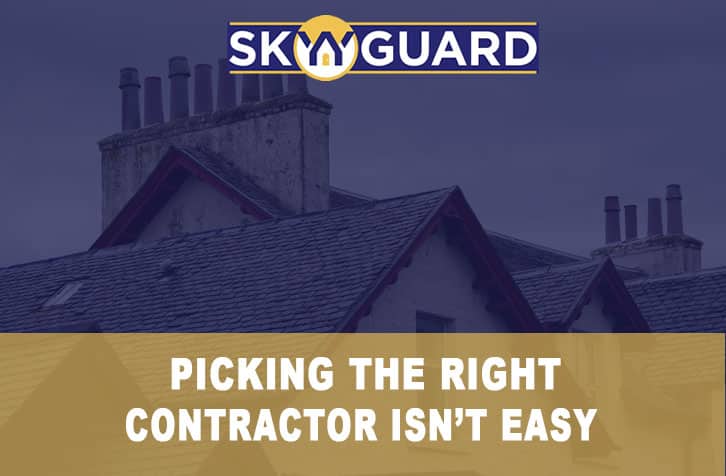It’s vital to know that you can rely on a roofing contractor to give you good advice about the products and procedures that will be used on your reroofing project. A top-notch, professional contractor will be committed to providing you with the best roofing system possible. Here are six factors to consider when judging the experience, reputation, and reliability of potential contractors.
1. Location — Hiring a contractor with an office nearby increases the likelihood of better service and quicker response time.
2. Insurance certificates — Contractors should carry both liability insurance and workers’ compensation insurance. General liability insurance protects you if the contractor causes damage to your home or property during the project. Without liability coverage, you may be responsible for any repairs or damages incurred. Workers’ compensation insurance protects you if a contractor is injured while working on your property. Without workers’ compensation insurance, you or your homeowner’s insurance may be responsible for the injured worker’s medical bills. Don’t be misled if a contractor makes a general assurance of other coverage, such as health, life or auto insurance.
3. License review — Many, but not all, states and cities require contractors to be licensed. If your state requires contractors to be licensed, the contractors might have had to pass a written exam in their specialty. A quick check with your local licensing authority will clarify which licenses are applicable to your particular area. Note that a standard business license is a tax requirement and does not speak to a contractor’s competence.
4. Credential check — Premier roofing manufacturers offer a variety of programs for professional contractors to establish their credentials as knowledgeable roofing companies. These credentials are another indicator of their degree of knowledge, professionalism, and commitment to their trade.
5. Multiple references — Obtaining references allows you to double-check a contractor’s business. Ask for photos of completed work from within the past month and request a list of about 5 names and their contact information. While you probably will only need to contact three, having 5 references will let you pick and choose, especially if several turn out to be non-responsive. Make sure to get addresses so you can drive by and check out the work for yourself.
6. Workmanship warranty — In the event that there are any problems with workmanship the contractor’s short-term warranty is even more important than coverage in the later years. This is because such problems, if present at all, are usually quick to surface. Even if problems of workmanship arise after the workmanship warranty has lapsed, a reliable contractor typically will stand behind their work. Also, ask for a copy of the manufacturer’s warranty for the specific products that you are considering. Together, these two separate warranties will cover the roof system, so you need to understand them both.
Article from: https://www.certainteed.com/residential-roofing/roofing-101-evaluating-contractors/



